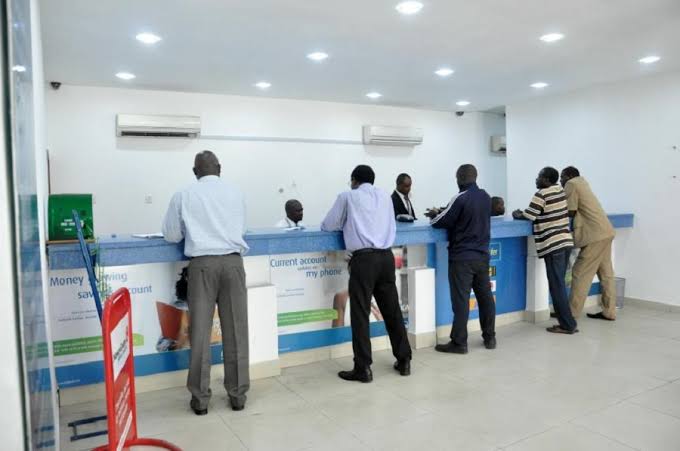Commercial banks across Nigeria are currently undertaking major upgrades to their technology infrastructure in an effort to prevent the recurrence of the widespread transfer failures experienced by customers during the Central Bank of Nigeria’s (CBN) now-withdrawn cashless policy. These upgrades come in response to the increased demand for digital transactions, but customers are experiencing some short-term challenges as banks work to modernize their systems. In exchange for the present inconveniences, the goal is to deliver long-term improvements in service reliability and capacity.
Adedeji Olowe, the founder and CEO of Lendsqr, a fintech company, emphasized the necessity of these improvement in the banking system. Olowe, who previously held senior roles at UBA, Access Bank, Fidelity, and FCMB, remarked that “The upgrades will improve banking capacity and cope with increased online banking demand.” The rapid growth in digital payments across the country has put immense pressure on existing infrastructure, revealing the urgent need for technological enhancement.

The increasing reliance on electronic payments in Nigeria is illustrated by the numbers. In the first seven months of 2024, electronic payments surged by 84.37 percent, reaching a total of N572.63 trillion. This is a clear indication of the country’s ongoing shift from a cash-based economy to a more digital framework. The cashless payments recorded during the CBN’s withdrawal policy highlight this trend, as transactions jumped to N611.06 trillion in 2023, up from N395.38 trillion in 2022. This drastic increase, while promising for the future of cashless payments, also exposed severe weaknesses in the nation’s financial infrastructure.
The World Bank provided a candid assessment of Nigeria’s cashless transition, noting, “The lack of adequate digital and financial infrastructure and processes to support a swift transition to a cashless economy… further exacerbated the situation.” These shortcomings became apparent as the nation attempted to rapidly embrace cashless transactions, prompting banks to reevaluate their technological capabilities.

To address these challenges, industry experts stress the necessity of infrastructure upgrades. Femi Adeoti, the group managing director of RoutePay, remarked on the existing deficiencies in the banking sector’s infrastructure. According to him, the current systems are not equipped to handle the anticipated growth in the volume of digital transactions. He elaborated on this in an interview, stating, “While we are right to celebrate an increase as high as 125 percent, the failures recorded show that we could have achieved more.”
In addition to improving transaction efficiency, these technological upgrades are critical to enhancing cybersecurity measures within the banking industry. Cybersecurity has become a pressing concern, particularly in light of the staggering losses due to fraud. Between 2019 and 2023, Nigerian bank customers lost N59.33 billion to fraudulent activities, with over 80,658 customers falling victim to scams in 2023 alone, slightly fewer than the 84,130 reported in 2022. The need for more robust cybersecurity infrastructure is evident, and the ongoing technology investments are aimed at addressing these vulnerabilities.
As Nigeria aims to become a fully cashless economy by 2025, several banks are taking proactive steps by ramping up investments in their core banking systems. Five major banks plan to allocate N248.21 billion toward upgrading their technology over the coming months. Guaranty Trust Bank (GTB), for example, has made it clear that improving its digital infrastructure is central to its customer experience strategy. According to GTB, “A core part of the GTCOPLC Group’s customer experience strategy is strengthening its digital platform to support the delivery of a consistent and seamless banking experience for customers… the GTCOPLC Group invests resources for reducing the number of failures and minimizing the potential damage to the businesses of the Operating Entities.”

To execute this strategy, GTB disclosed in its recapitalization prospectus that upgrading its core banking applications, hardware, and network architecture would require an investment of N70 billion. Despite these efforts, some industry observers have expressed concern over the lack of transparency regarding the timeline for these IT migrations. Customers have also voiced their frustrations, as delays and disruptions continue to plague the banking system. For example, GTB’s recent migration to the Finacle core banking system has resulted in ongoing service disruptions, with customers reporting that they are still unable to complete online payments.
One customer shared their experience stating, “GTB’s entire system is still down. We can’t make online payments yet.” Such challenges underscore the complexity of migrating to a new core banking system. A fintech CEO explained the multifaceted nature of these upgrades, noting, “Migrating to a new core banking system is complex. It involves infrastructure, software, customer channels, historical data, training, certification, and commissioning.” The intricate and time-consuming nature of these migrations often leads to unanticipated delays.
A senior executive familiar with the Finacle system likened the process to an extremely delicate operation, stating, “Replacing a core banking application is like changing the engine of a Boeing 747 mid-flight.” This analogy highlights just how critical and risky these upgrades can be. Historical evidence further supports this view. For instance, in the 2000s, First Bank’s migration from the Bankmaster system to Finacle took six months to complete, showing how time-intensive such transformations can be. A tier-one bank worker echoed this sentiment, remarking, “Migrations take a lot of time. Our last major upgrade took a while as well.”
Nevertheless, these upgrades are routine and necessary for banks around the world, as noted by Adedeji Okowe, founder of Lendsqr. He stated, “These upgrades are routine for banks globally. Large businesses must periodically upgrade their core systems.” As Nigeria’s banking sector positions itself for future growth, these improvements are seen as vital to its long-term success. Additionally, the banking industry is preparing for a period of expansion in the wake of the CBN’s announcement of new capital requirements. In March, the CBN mandated that international banks raise their capital base to N500 billion, while national and regional banks are required to raise theirs to N200 billion and N50 billion, respectively.
This is not the first time Nigerian banks have faced such a challenge. In 2005, banks were instructed to raise their capital base to N25 billion, which led to a wave of mergers and acquisitions, as well as technological upgrades. A prime example is the merger of United Bank for Africa, Standard Trust Bank, and Continental Trust Bank, which resulted in UBA adopting the Finacle banking software in place of Flexcube.
Looking ahead, banks are preparing themselves for a future defined by rapid growth and digital transformation. Olowe summarized the situation by saying, “Banks are preparing for the future. With new capital, they are ready for hyper-scale growth, supported by better platforms.”
However, some experts have raised questions about the timing of these infrastructure upgrades. The fact that multiple banks are upgrading their IT systems simultaneously has prompted speculation among analysts. One analyst observed, “It is unusual for banks to upgrade their software simultaneously. They would term this a coordinated market action if this were the US.” Whether coincidental or not, the simultaneous nature of these upgrades has certainly captured the attention of those monitoring the banking industry.































